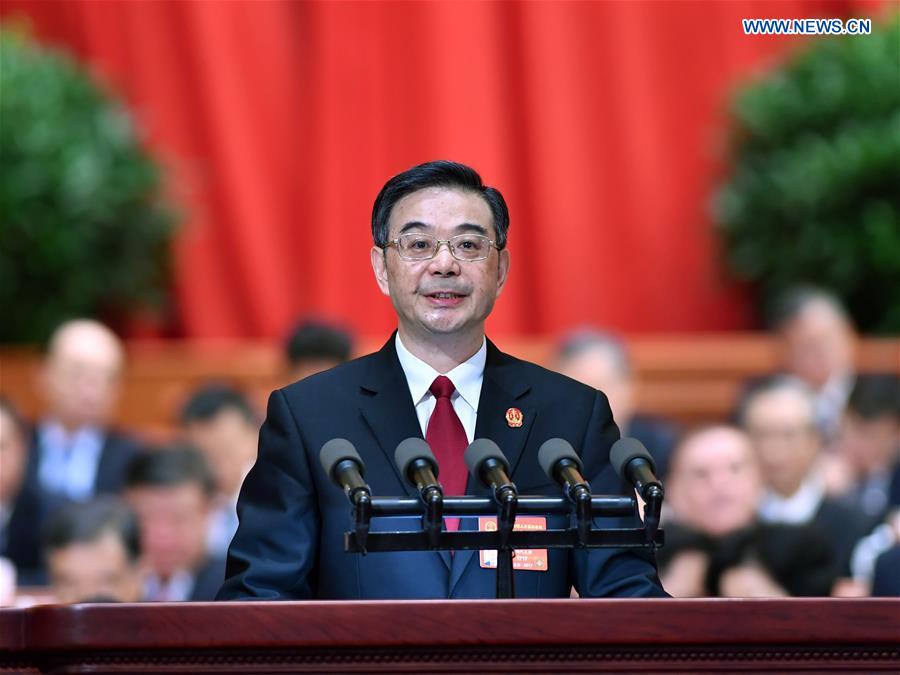 |
|
Chief Justice Zhou Qiang delivers a work report of the Supreme People's Court at the third plenary meeting of the fifth session of the 12th National People's Congress at the Great Hall of the People in Beijing, capital of China, March 12, 2017. (Xinhua/Li Tao) |
China's top court and procuratorate on Sunday pledged to help maintain social stability and boost economic growth, ahead of a key Communist Party of China (CPC) congress to be convened in the second half of this year.
"[We will] resolutely protect the nation's political security, in particular the security of the state power and the political system," Chief Justice Zhou Qiang said.
Presenting a work report of the Supreme People's Court (SPC) at a plenary meeting of the National People's Congress (NPC) annual session, Zhou said Chinese courts will help create a "safe and stable" social environment as well as a fair and just legal environment.
CPC and state leaders Xi Jinping, Li Keqiang, Zhang Dejiang, Yu Zhengsheng, Liu Yunshan, Wang Qishan and Zhang Gaoli attended the plenary meeting.
Zhou promised to keep a firm hand on crimes undermining national security and on violent and terrorist crimes in accordance with the law.
Courts will strike hard on severe criminal offenses such as murder and robbery, and hand out due sentences for those involved in telecom and Internet fraud, in order to maintain social stability, the chief justice said.
Procurator-General Cao Jianming, meanwhile, pledged to severely punish infiltrating, subversive and sabotage activities by hostile forces, violent and terrorist crimes, ethnic separatist activities and religious extremist activities, to "safeguard security, protect stability and promote harmony."
Crimes involving Mafia-like gangs, guns, explosives, drug making and trafficking, women and children trafficking, as well as crimes undermining national defense and military interests will also face harsh penalties, Cao said in a report on the work of the Supreme People's Procuratorate.
Last year, Chinese courts convicted a number of people on charges of subverting state power, including Zhou Shifeng, a lawyer who formerly managed the Fengrui Law Firm in Beijing, and Hu Shigen, an illegal church leader. Zhou was sentenced to seven years in prison, and Hu seven years and a half, by a court in Tianjin Municipality.

